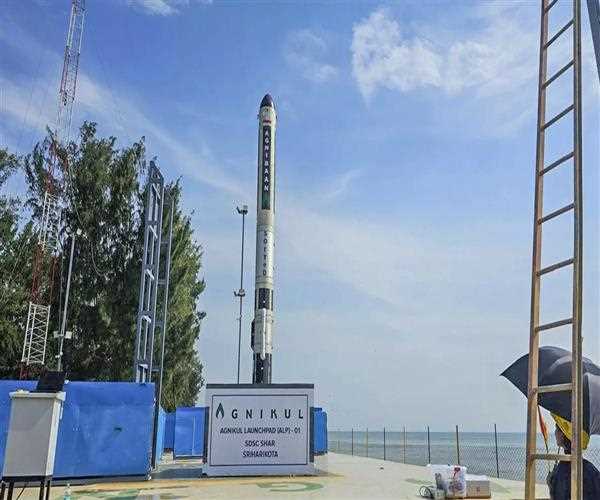
Agnikul Cosmos flies the world’s first 3D-printed rocket engine
- Recently, Agnikul Cosmos managed to launch the first rocket engine made with 3D technology.
- The new 3D-printed engine is to reduce launch expenses and hasten the construction of engines.
Indian space startup Agnikul Cosmos on Thursday laid down a marker when it successfully launched its first sub-orbital test vehicle aided by the single-largest 3D-printed rocket engine in the universe. The vehicle, named Agnibaan SOrTeD (Sub-Orbital Technology Demonstrator), lifted off at 7:15 am from a private missile, from a private launchpad set up at Sriharikota the only operational spaceport of India.
Celebrations and Congratulatory Messages
ISRO congratulated Agnikul Cosmos for the achievement and deemed it a major accomplishment that India’s innovation heroes have “realized controlled flight for the first time with a semi-cryogenic liquid engine that was manufactured additively. ” In his Twitter handle, IN-SPACe chairman Dr. Pawan Goenka also congratulated Agnikul Cosmos on the successful test flight of its rocket and commended the young talents of India.
A scrap Knowledge of 3D Printing Modern technology
Conventionally, reactive control widgets are made of selenium separately with the integration done later during the assembly of the engine. From the case, the innovation of using 3D print technology where Agnikul printed the semi-cryogenic engine named Agnilet as a single piece.
This can be seen to have a positive impact on lowering the costs of launching a vehicle and also cutting down the time required to assemble a vehicle. This is a breakthrough that would go a long way in the fast-forward assembly of rockets, particularly from space agencies around the globe.
Details of the Launch
During the flight, the sub-orbital test vehicle was supposed to ascend to 8 kilometers above sea level and then splash into the sea. While this was a sub-orbital mission, Agnikul Cosmos is targeting to launch its first orbital mission before the end of this financial year to cater to the small satellite industry at affordable prices.
Dhanush, their mobile launchpad enables them to launch from different places giving them operational versatility.
Future Plans
IIT Madras incubated Agnikul Cosmos is proud of this achievement list which has the list of India’s first Semi-Cryogenic Engine and tested Sub-Cooled Oxygen as a Fuel. Srinath Ravichandran, the co-founder of the company and the CEO, extends appreciation on behalf of the team to IN-SPACe and ISRO for their help and notes how much work was done by the employees. It has a plan to launch products regularly from next year and it is a key player in the global space business.


